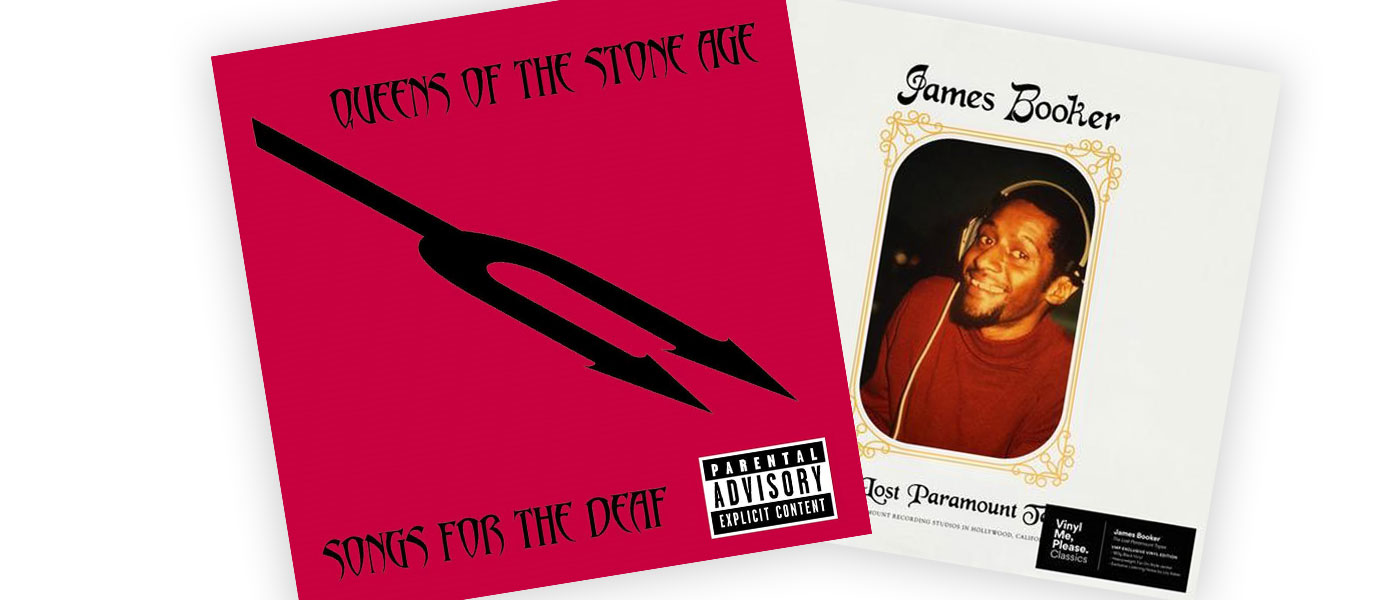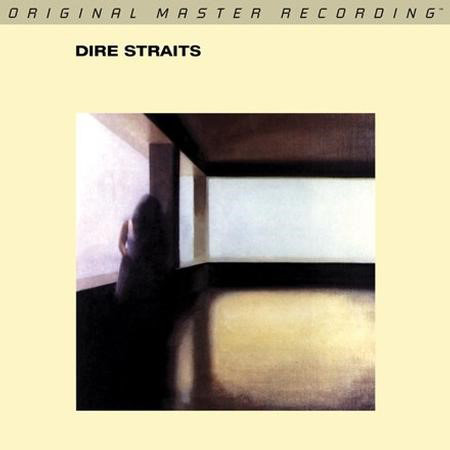
When I was a kid, pops had a pair of those big-ass Klipschorns standing in the corner taller than me. They were loud, and he was especially fond of cranking Dire Straits, the London band’s 1978 eponymous debut. I remember thinking that the record was different. Cleaner, clearer, with an apparent intellectual bent, even if I wasn’t yet able to express that sentiment. Still, the experience didn’t stick. I lost track of the memory until the band blew up big in 1985. But I’d circle back for it later at the urging of my first college roommate. And this time, I was ready. The song-craft and talent stood out in even sharper relief when compared to what was popular then. The clean tones and the minty recording cried out for years to be liberated from the digital confines of the dreaded compact laserdisc. Or the pedestrian vinyl reissue. Finally, Mobile Fidelity answered the bell. Theirs was cut at 45 rpm and spread out over two massive, flawless discs. If the reader is apt to believe in fate or the Butterfly Effect, it would not be a stretch to suggest that MoFi was born for this very sonic moment. The first pressing seemed to sell out based on pre-orders alone, and I whiffed. The initial wait and the additional wait were both well worth it.
That’s obvious at the first sound of Mark Knopfler’s moody intro to the album opener. What you’re hearing is the sound of two guitars, a bass, and a drum that are about to blast off into history. And a song about to blast out of your speakers in a way that few, if any, had blasted before. “Down to the Waterline” has a million salient moments, but my favorites are tied up in the smart-aleck intros to Knopfler’s solos. He uses the same one four times, and I would have too. The guy’s playing is so slippery and smooth that it tickles you. Makes you squint your eyes and cock your head sideways to comprehend.
And just then, he hits you with an entirely different approach on “Water of Love.” Knopfler’s sparse National Guitar slide work, which reappears later on the relentlessly wistful “Wild West End,” is as warm as your favorite winter blanket. And at this point, we’ve mentioned nearly half of the album’s songs, and still haven’t landed on “Sultans of Swing.” Add that one to “Six Blade Knife,” and you’ve got the pillars of one of Rock’s finest ever debuts.
Secrets Sponsor
And Knopfler stands bolt upright in the middle of it with all the confidence and ability of a pre-ordained Legend. He’s wry and witty, sentimental and sad, flinging out riffs and one-liners as effortlessly as Stephen King writes cinematic novels. It’s hard to imagine these songs filling an arena, although they almost certainly have. I get more out of an active approach from my dedicated listening spot. Alone with my ears and the songs, squinting with my head turned up.
I saw Knopfler open for Dylan a couple of years ago, and he was onto some sort of Celtic thing. Until he closed with “Walk of Life,” during which he used the ’80s instrumentation that made that song a hit. I’d have given my left leg for just a snippet of “Water of Love,” but this MoFi record makes for a brilliant consolation prize. It’ll undoubtedly stand-in until the Return of Live Music. What a day that will be…
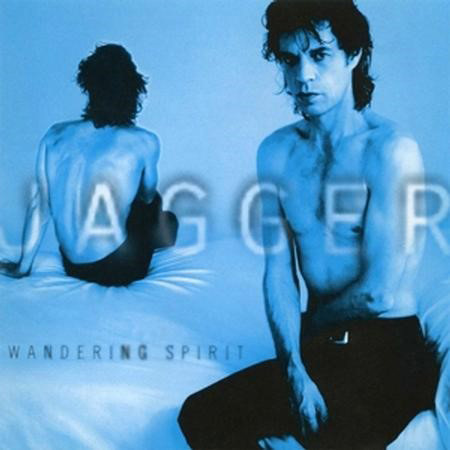
“Wimpy songs, wimpy performance, bad recording.” That’s how Keith Richards described Mick “Don’t Call Me Brenda” Jagger’s solo output in 2002. And he was mostly right. You certainly don’t want to find yourself on the wrong end of a speaker blasting anything off of Primitive Cool or, God helps us all, She’s the Boss. But there’s a sleeper in there that Jagger slipped by us in early ’93. I was knee-deep in a theater program as a student at a North Georgia women’s college then (long story), so I had bigger fish to fry. I found Wandering Spirit circa 1996. Thank goodness. It finally got a full vinyl release last year. Let’s see.
Spirit kicks off with a straight-ahead rocker with a hint of ’80s interference. The palette’s too clean, the playing too tight. But then, you’re met with “Sweet Thing.” And the scene changes. Notice: no bouffant hair sculptures or visitations from Rae Dawn Chong will be forthcoming. Doug Wimbish’s slinky bass starts to slide around your sound holes. The funky drummer gets under your foot soles, and they start to burn too bright. Time to move. Jagger’s falsetto assumes the spotlight with more zeal than it had since “Slave.” The middle eight breakdowns devolve into hand drums and sax blasts before the song reassembles itself for the stretch run. And suddenly you’re all up in the club with the short skirts and the high heels, the flashing lights, and the grinding sweats. “How did we get here?”
There’s an array of sounds, textures, and techniques that add up to make Spirit such an engaging listen. If you feel the need to cleanse yourself after “Sweet Thing,” you can head to the chapel for “Out of Focus” or split the difference with “Don’t Tear Me Up.” Both make use of the church organ and gospel choir, handclaps and acoustic piano. During the latter tune, Jagger’s voice is doubled on the bridge before a guitar solo invades the space to reorient us to the Rock ’n Roll moment. It’s a little more technical than anything one would expect from Keith or Ronnie, which seems to fit with Jagger’s occasional need to distance himself from his day job.
And, to that end, he brings in some hired help. Lenny Kravitz (vocals) and Flea (bass, obviously) get in the ring for a filthy run through Bill Withers’ s classic “Use Me.” Kravitz is in the full throat here and almost does to Mick what Mick did to Michael on “State of Shock” ten years prior. That is to say; he damn near takes over the whole program. But Mick won’t be denied. He’s in fine fighting form throughout and even gifts us with “Evening Gown,” which could still become a Country standard, pedal steel and all, if anyone were paying attention. It’s just one of a handful of highlights that make the album a low-key revelation.
Rick Rubin, himself, produced Wandering Spirit, which doubtlessly accounts for the more natural feel of the instrumentation and the performances as a whole. The title sums up the content, as Mick flits between genres with an agility to rival his legendary stage presence. And he wrote the record’s best songs without the help of his lifelong foil. The vinyl presentation is good, not great. Pressed at GZ with minimal intrusion. Responsive bass with clear mids and clean-ish highs. Don’t let Keith Richards turn you off to this ’90s hidden gem.
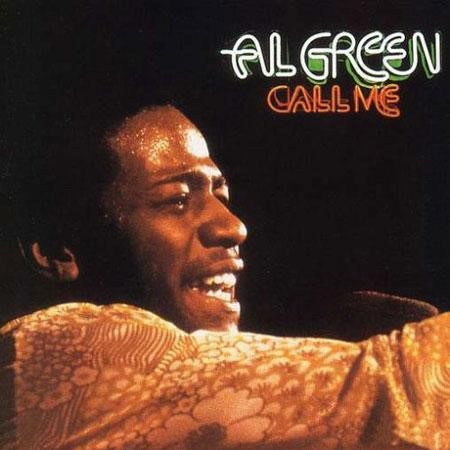
The Which-Album-Would-You-Want-With-You-When-Stranded-On-An-Island game is impossible to win. It’s like trying to grab an eel. Soon as you think you’ve got a handle, you remember another record that you can’t imagine a world without, and the eel’s out of your grasp and back in the water. But I have a suggestion, and I think it’s as good as it is simple: consider Al Green’s Call Me. Seriously. You could do much worse, but probably not appreciably better. Here’s why:
I’ve owned three versions of Call Me. (We’ve talked about this.) In 2016, I upgraded my original pressing to the Speakers Corner take from 2011. That solved the noisy vinyl issues and gifted me a more even sonic experience with deep, punchy bass and clear separation between individual instruments and vocals. I’d never have considered a replacement except that I kept reading about this Vinyl Me, please business (from just last year), and People Who Know were singing its praises with as much passion as Al Green in a virtual bedroom. I’d read a bit about Vinyl Me, and I thought they were mainly concerned with brightly colored pressings, but there’s more going on, and there’s a lot to like. Off the top, they’re transparent about where their discs are pressed. If they remaster from the original tapes, they’ll tell you about it. If not, they just don’t mention it. (Ryan Smith cut the lacquers for this version from the original analog tapes.) They’ll also tell you about the cover (tip-on or not), whether or not the album is numbered and/or foil stamped, any extras (posters, etc.), and the like. Their version of The Soft Bulletin comes with a cocktail recipe. My copy of Call Me came with “listening notes” by Memphis-based music historian Robert Gordon. The notes are really an extended essay in a little paperback field notebook type of thing, which is really frigging cool as far as ephemera goes. The Speakers Corner folks recreated the original album artwork without adding their own branding. Not so with the VMP variant. They’re not fooling anyone.
Except maybe your ears. Which might be tricked into thinking that Al Green and the Hi Records Rhythm Section are in your listening room. Green harmonizes with himself throughout the program, and his voice sounds so alive and present that I was given a legitimate start when his falsetto first came floating out of my left channel. (I seriously looked up with a racing heart to confront an intruder.) That voice and Tennie Hodges’s guitar are unusually warm and detailed on the VMP pressing in comparison to the Speakers Corner version. The SC pressing is louder, which will likely trick some listeners into automatically assuming it is “better.” It’s more forceful and muscular, in general than the newer reissue. Both pressings are great, but I don’t know who SC used. VMP went with QRP, and I am cautiously optimistic that they are pressing more consistently excellent albums these days. I prefer their take on Call Me because I think the more delicate sound is a better match for the material.
Secrets Sponsor
But you can’t go wrong with either version of this album. New copies of the SC pressing might be easier to find. The Vinyl Me take was up for sale on Acoustic Sounds this morning (along with some other VMP titles pressed at QRP) but is not now. It’s worth the effort to track a copy down quickly.
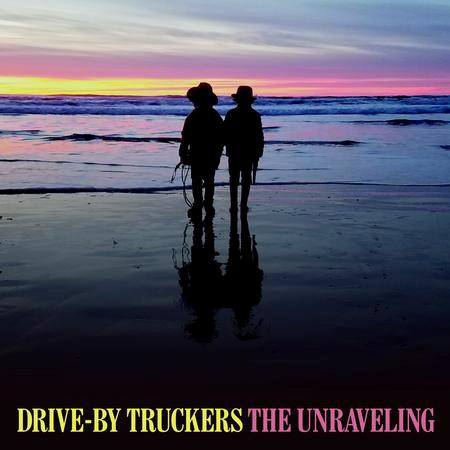
I was scheduled to see the Drive-By Truckers at the Fillmore tonight. And I was looking forward to hearing the band play the songs off of their newest record, The Unraveling. Because I think it’s their strongest work since maybe Go-Go Boots. I reckon that’s part of the hassle of being in a legitimately great band. People like me are always comparing your current work to your earlier efforts, and often pining for the days of yore. I recognize the unfairness and laziness of it, and I’m not proud. But I can’t help it. Discovering the DBT experience was a significant turning point in my (relative) youth. I’ve loved them for a long time, and I still do. Here’s why:
The Unraveling actually addresses some issues. Songs with titles like “Thoughts and Prayers” and “Babies in Cages” announce that intention from the start. After the last “Presidential” Election, I assumed there would be a massive influx of protest music. Or at least music that was designed to promote thought and reflection. Nope. We went right on singing about the size of our cars, the size of our asses, and the number of shots we drank at the club last night. Meanwhile, our artists who are fortunate enough to have a platform to reach the masses seem to be sleeping through the entire shooting match.
But the Truckers have always been fearless in this regard. They’ve risked the very real possibility of alienating their core audience while supporting the Black Lives Matter movement and speaking out (loudly) against the current regime’s many abominable transgressions. DBT is a Southern facing organization. Their fans who have been with them the longest might be more comfortable singing along to “Ronnie and Neil” than being challenged for engaging in willful ignorance or for supporting policies and actions designed to maintain an unleveled and unsafe playing field.
So, The Unraveling is inspiring in that way. But, man, the Truckers have found a new groove too. I’ve seen it with my own eyes. They’re not brutishly powering their way through beer-soaked sets designed to drain the blood of their adversaries so much anymore. The Unraveling has rockers (see “Slow Ride Argument” if you’re unconvinced), but this is more of a controlled burn. Raging in the right places, but more measured in general. This record is more geared towards thoughtful contemplation than sweaty catharsis. Musically as well as lyrically. The cerebral, reverb, soaking solos on “Awaiting Resurrection” is illustrative of this direction. Hell, there’s even a string section on a couple of tunes. Like, violins and violas and stuff. Not just the kind of strings that you plug into a Marshall stack.
This is the kind of record that can be enjoyed in almost any setting. I’m sure the songs would have filled the Fillmore and run screaming right out into the intersection at Geary Avenue had they had the chance tonight. But I also get as much from a deep, active listening at home alone, which is good because that’s all I have to look forward to for a while. If I’m lucky, in such uncertain, weird, and downright scary times, it’s nice to know that at least one badass band is still paying attention. We all get to choose which people, movements, and ideas we support in this whacky world. The Truckers aren’t ambiguous about where they stand. And I stand with them.
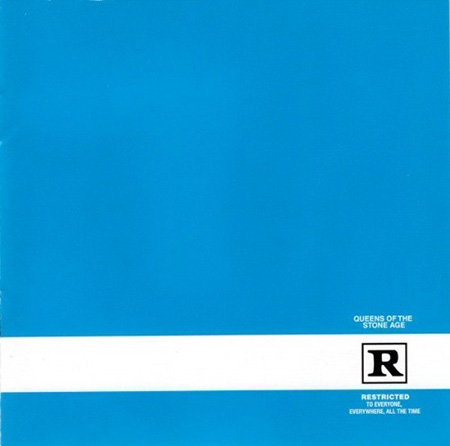
I was working in the bowels of a Georgia deli the first time I remember hearing “No One Knows” by the Queens of the Stone Age. This would have been around 2002. I don’t remember liking much else on the radio at the time, but that song stood out loudly. In all the excitement around roast beef slicing, I forgot all about the band until they released …Like Clockwork over a decade later. Pretty soon, I was flying to Las Vegas to catch the band live and buying up as many Clockwork copies as was necessary to achieve a viable listen (three). I always wanted to explore their earlier work, but their vinyl releases were hard to find and not well regarded in many instances. They also seemed especially susceptible to bootleggers, somehow. Anyway, they’ve fixed all that with a reissue campaign to appease those of us that came late to the party. We’re here to examine their second release, Rated R.
This is the album that would inspire Dave Grohl to put the Foo Fighters on hold so that he could pound the drums on the QOTSA’s third record, Songs for the Deaf (more on that one soon), and the supporting tour. I was questioning his logic after my first pass on Rated R. I just wasn’t connecting with the material. It wasn’t because of the ’90s era production, which is surprisingly unobtrusive. I think I was turned off by the album opener, “Feel Good Hit of the Summer,” the lyrics of which consist exclusively of a list of narcotics. I knew from experience that the crowds go wild when Josh Homme sings the “c-c-c-c-cocaine” part, but it all just seems so uninteresting to me. Perhaps that colored my initial listens. Due to some issues I’ve been experiencing with my home stereo (God, help me), I shelved my records for a couple of months (seriously). When I returned to listening, either employing extreme gratitude for the ability to hear Vinyl at all or something else, the record sounded new to me.
Multiple styles are explored on Rated R, and they all have either “Stoner” or “Rock” or both in the description. Still, the band displays an impressive command of dynamics and techniques that allow them to vary their song structures and textures in a way that keeps things moving and breathing. QOTSA has employed a revolving door of contributors during its day with Homme as the lone constant. His most audible confederates on Rated R are Nick Oliveri and Mark Lanegan (who sings lead on my fave, “In the Fade”). Oliveri is a fan favorite despite having been fired for issues related to alleged domestic violence. He was around for the Songs for the Deaf sessions and tours and is generally considered to be a mainstay of the band’s “classic lineup.” He brings a punkier energy to the proceedings—a little slash and burn to cut through the haze. If you’re a fan of Hard, Punk, and Stoner Rock, there’s something here for you.
And those pressing issues have been resolved too. Pallas USA did a fine job with this one. All that crunch and grind can be heard without hindrance by Snap, Crackle, or Pop. A lyrical insert is included as well as a bonus track at the end. Rated R was built for good times with others. As soon as it’s safe, I recommend grabbing a few friends and cranking this one to 11.


